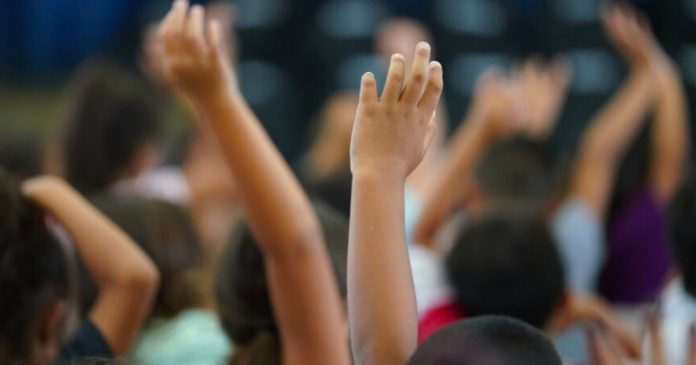Irvin Studin is President of The Institute for 21st Century Questions, Chair of the Worldwide Commission to Educate All Kids (Post-Pandemic), Editor-in-Chief & Publisher of Global Brief magazine, and Co-Chair of the Canada Science & Policy Committee to Exit the Pandemic. His new book is “Canada Must Think for Itself – 10 Theses for our Country’s Survival and Success in the 21st Century.”
The closing of schools is a policy crime. Full stop. This may not be well understood today, but it will be, in a felt way, within the next five years.
For the consequences of this policy crime, whoever its author, will reverberate well into the next several decades, bleeding into all facets of our once-stable society.
Of course, it is the school closures suddenly announced across Ontario’s public schools – this time as a result of union strikes – that bring this painful subject back to the fore of public and political debate. And for the record, I am strictly agnostic on the content of the labour negotiations that led to this particular round of school closures – or indeed “who’s to blame”.
A plague on all their (and our!) houses, I say – for it is our beloved Canadian society, once the most admired in the world, that has allowed this policy pathology to take hold and become commonplace.
Canada now appears to be a country that, having presided over the longest and most catastrophic school closures in the Western world, is patently unable to keep its schools open even if it tries. This is a degenerate failure of adult understanding and responsibility vis-à-vis our youth – the future of the country, if we wish to have one.
As I, for one, wish for our country to have a great future, let me argue that Canada must shift decisively – immediately – to become the very first country in the world to commit in law and public understanding never again to close our schools for the balance of the 21st century. Ever.
But first, let us see clearly what has happened at our feet, while we were tweeting.
The mass school closures of the last two-plus years had two capital consequences for the youth of the world: first, half a billion children, rich and poor alike, were permanently ousted from all forms of schooling; and second, those children who remained in formal schooling systems suffered massive learning losses.
We have come to call children in the first “ousted” category “third bucket kids” – that is, kids who, as soon as the schools shuttered, ended up in neither physical school (“first bucket”) nor virtual or online school (“second bucket”).
These “third bucket kids” are not homeschooling or podschooling – nay, they are, for a variety of complex, very human reasons, in a Dickensian “no school at all” state, at all ages, with no prospect or plans to return to education.
If India suffered many millions of third bucket kids – young girls married off once the schools closed, or young boys and girls who entered the work force full-time – then Canada, too, saw tens of thousands of our students leave school altogether, permanently, once school closures began to stretch for months.
Ontario, which controls 20% of the national student population and had the longest school closures in North America, evidently had the largest number of third bucket kids in the country.
Ontario also arguably led the country in learning loss. Recent Grade 6 standardized test math scores saw less than half of the students in Canada’s largest province performing at grade level, with just over half of Grade 9 students performing at grade level. Literacy and social skills also suffered massively during the serial closures.
What have we done?
Lest there be any doubt, our country’s third bucket kids and education-compromised youngsters will, before long, meet the kids of other, smarter countries in the theatre of life, and they will get crushed.
For those smarter countries – Central European and Scandinavian countries, Southeast and Northeast Asian countries – did not close their schools at all, and when they did close their schools, their leaders and systems provided the requisite energy, outreach and resources to ensure that leakage or ouster from the system was stanched, and that the overall system stayed whole.
Very soon we will understand – I think and hope! The schools must never be closed – ever. Not for a snow day, not for reasons of labour or other adult disputes, and not for reasons of incompetence, caprice or temporary mania. Zero school closures. This is the major first lesson of Canada’s multiple pandemic-period catastrophes – if we dare to think, and if we wish for our kids and our country to survive and succeed in a more fastidious tomorrow.
Irvin Studin is President of The Institute for 21st Century Questions, Chair of the Worldwide Commission to Educate All Kids (Post-Pandemic), Editor-in-Chief & Publisher of Global Brief magazine, and Co-Chair of the Canada Science & Policy Committee to Exit the Pandemic. His new book is “Canada Must Think for Itself – 10 Theses for our Country’s Survival and Success in the 21st Century.”
